
Aldous Leonard Huxley was an English writer and philosopher. His bibliography spans nearly 50 books, including novels and non-fiction works, as well as essays, narratives, and poems.
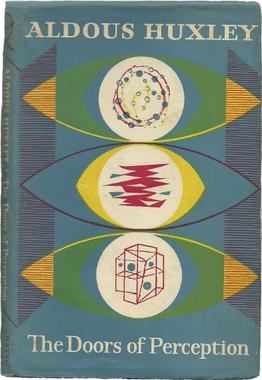
The Doors of Perception is an autobiographical book written by Aldous Huxley. Published in 1954, it elaborates on his psychedelic experience under the influence of mescaline in May 1953. Huxley recalls the insights he experienced, ranging from the "purely aesthetic" to "sacramental vision", and reflects on their philosophical and psychological implications. In 1956, he published Heaven and Hell, another essay which elaborates these reflections further. The two works have since often been published together as one book; the title of both comes from William Blake's 1793 book The Marriage of Heaven and Hell.

Brave New World is a dystopian novel by English author Aldous Huxley, written in 1931 and published in 1932. Largely set in a futuristic World State, whose citizens are environmentally engineered into an intelligence-based social hierarchy, the novel anticipates huge scientific advancements in reproductive technology, sleep-learning, psychological manipulation and classical conditioning that are combined to make a dystopian society which is challenged by the story's protagonist. Huxley followed this book with a reassessment in essay form, Brave New World Revisited (1958), and with his final novel, Island (1962), the utopian counterpart. This novel is often compared as an inversion counterpart to George Orwell's 1984 (1949).

Christopher William Bradshaw Isherwood was an Anglo-American novelist, playwright, screenwriter, autobiographer, and diarist. His best-known works include Goodbye to Berlin (1939), a semi-autobiographical novel which inspired the musical Cabaret (1966); A Single Man (1964), adapted into a film directed by Tom Ford in 2009; and Christopher and His Kind (1976), a memoir which "carried him into the heart of the Gay Liberation movement".

Island is a 1962 utopian manifesto and novel by English writer Aldous Huxley, the author's final work before his death in 1963. Although it has a plot, the plot largely serves to further conceptual explorations rather than setting up and resolving conventional narrative tension.
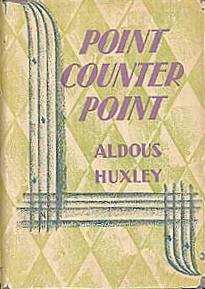
Point Counter Point is a novel by Aldous Huxley, first published in 1928. It is Huxley's longest novel, and was notably more complex and serious than his earlier fiction.

Henry FitzGerald Heard, commonly called Gerald Heard, was a British-born American historian, science writer and broadcaster, public lecturer, educator, and philosopher. He wrote many articles and over 35 books.
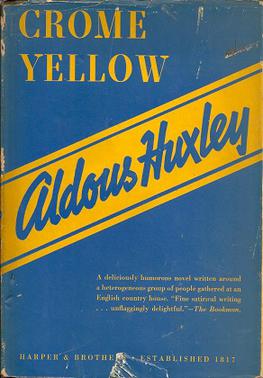
Crome Yellow is the first novel by British author Aldous Huxley, published by Chatto & Windus in 1921, followed by a U.S. edition by George H. Doran Company in 1922. Though a social satire of its time, it is still appreciated and has been adapted to different media.
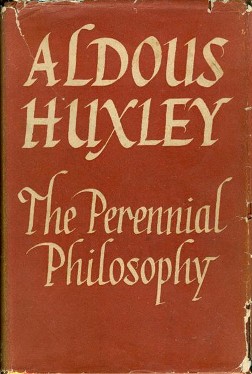
The Perennial Philosophy is a comparative study of mysticism by the British writer and novelist Aldous Huxley. Its title derives from the theological tradition of perennial philosophy.
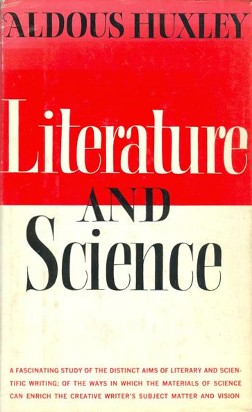
Literature and Science, published in September 1963, was Aldous Huxley's last book - he died two months after it was published. In it, he strives to harmonize the scientific and artistic realms. He argues that language is what divides the two realms and makes communication between them difficult. He analyzes the ways in which scientists and fiction writers use language differently to achieve their desired effects. Although he concedes that many differences in language use are inevitable, he urges both camps to seek mutual understanding and appreciation. He directs his argument primarily to fiction writers: "Whether we like it or not,” he tells them, “ours is the Age of Science."

Beyond the Mexique Bay is a book of travel essays by Aldous Huxley, first published in 1934. In it, he describes his experiences traveling through the Caribbean to Guatemala and southern Mexico in 1933. The work is named for a line in Andrew Marvell's poem, "Bermudas."

The First and Last Freedom is a book by 20th-century Indian philosopher Jiddu Krishnamurti (1895–1986). Originally published in 1954 with a comprehensive foreword by Aldous Huxley, it was instrumental in broadening Krishnamurti's audience and exposing his ideas. It was one of the first Krishnamurti titles in the world of mainstream, commercial publishing, where its success helped establish him as a viable author. The book also established a format frequently used in later Krishnamurti publications, in which he presents his ideas on various interrelated issues, followed by discussions with one or more participants. As of 2022 several editions of the work had been published, in print and digital media.

Brave New World is a 1998 television movie loosely based on Aldous Huxley's 1932 novel of the same name. The film stars Peter Gallagher and Leonard Nimoy. It is an abridged version of the original story. The film aired on NBC on April 19, 1998.
Laura Huxley was an American musician, author, psychotherapist and lecturer. She was married to author Aldous Huxley from 1956 until his death in 1963.
Literature of the 20th century refers to world literature produced during the 20th century.
Marjorie Muir Worthington was an American writer of novels and short stories.

Vespasiano I Gonzaga, Duke of Sabbioneta was an Italian nobleman, diplomat, writer, military engineer and condottiero. He is remembered as a patron of the arts and the founder of Sabbioneta, a town in Lombardy designed according to the Renaissance principles of the "ideal city".
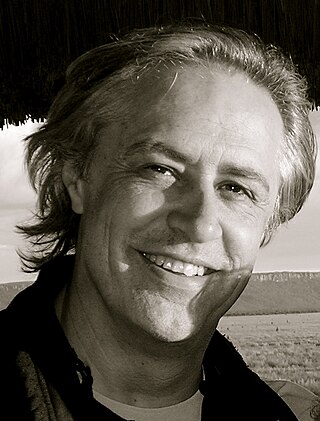
Dana Sawyer is professor emeritus of religious studies and world religions at the Maine College of Art & Design and an adjunct professor in Asian Religions at the Chaplaincy Institute of Maine. He is the author of numerous published papers and books, including Aldous Huxley: A Biography, which Laura Huxley described as, "Out of all the biographies written about Aldous, this is the only one he would have actually liked."
Flying Over Sunset is a musical with music by Tom Kitt, lyrics by Michael Korie, and a book by James Lapine. The musical is a fictional account of a meeting between Aldous Huxley, Clare Boothe Luce and Cary Grant, who all used the drug LSD.

The following bibliography of Aldous Huxley provides a chronological list of the published works of English writer Aldous Huxley (1894–1963). It includes his fiction and non-fiction, both published during his lifetime and posthumously.













